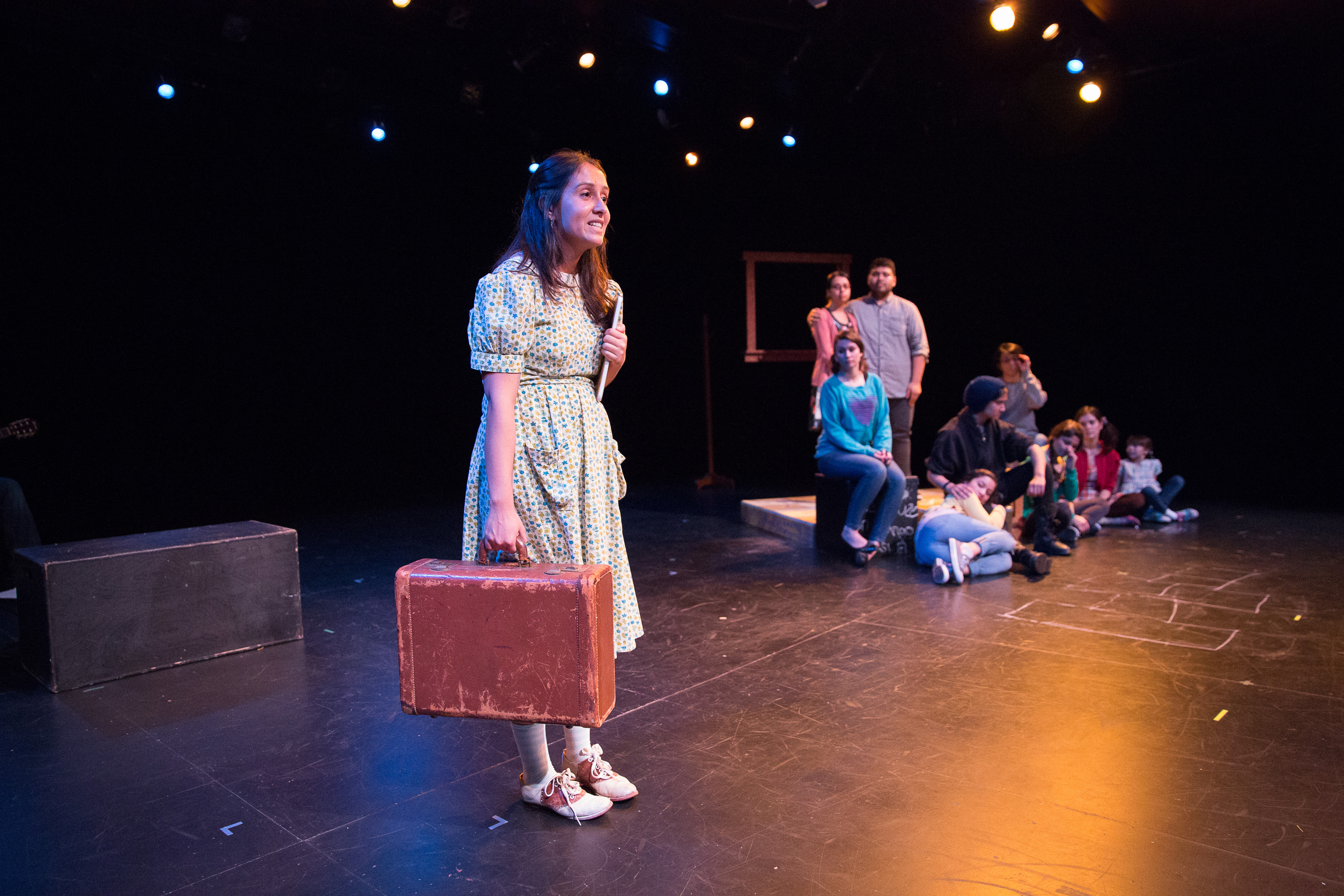What makes a house a home? A talented ensemble composed of actors from a local kindergarten and the Graduate School of Business explore this question in their rendering of Sandra Cisnero’s “The House on Mango Street” as part of the TAPS Grad Student Showcase.
The story follows Esperanza (Luz Minerva Jiménez Ruvalcaba), a young girl whose name means “hope,” but whose difficult childhood entrenched in poverty often makes her feel the opposite of such. Surrounded by a ragtag bunch of family members, friends and neighbors, she navigates her upbringing with spunk in the small, run-down house on Mango Street: a house she does not love, but one that forms her nonetheless.
Ruvalcaba offers depth to the role as she narrates the pieced-together vignettes that comprise the play to tell the story of her life. Although she acts childlike, wide-eyed and excited, she also explores adult values (such as her desire not to be like her grandmother who gave up her own independence for her husband). Even as a young child, Esperanza has an awareness of the gravities of life, and Ruvalcaba conveys this with tone and attitude changes that allude to a more mature mindset. It can be uncomfortable, however, to watch college actors portray young children with high-pitched voices and it, at times, proves overbearing.
Esperanza and her friends make Mango Street their playground, but it’s not all lighthearted: The “bad area” is plagued by violence and dangers for young children. One of Esperanza’s friends is taunted by a homeless man, and the lights, narrowed to a spotlight, illustrate the gravity of the situation. Juxtaposed with the lightheartedness of the children’s games, these serious moments are all the more compelling.
A talented guitarist plays live music on the stage throughout, which calls attention to Esperanza’s heritage. The music, with its warm tones, brings life to the vignettes.
More than just the story of one girl or one family or one house on one street, there is a universality to the stories and themes presented in “The House on Mango Street.” Poverty and sacrifice are often markers of families of Chicano origin, working to build their way up in a society that is not accepting. Yet, for these families, the home is a place where this life can be built and where support can be found. As intimidating as life can be, Esperanza is never alone.
At the end of the play, Esperanza admits that the “ghost” of the house on Mango Street still haunts her, and she writes down her stories to numb the nostalgic pain. Esperanza is tethered to the place, as she knows that her story is intertwined with those of other people who call it their home. She “has gone away to come back.”
Contact Madeline MacLeod at mmacleod ‘at’ stanford.edu.
